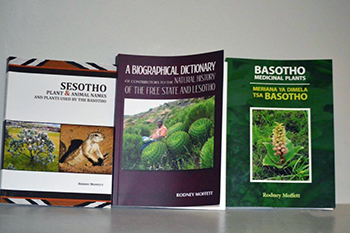Latest News Archive
Please select Category, Year, and then Month to display items
09 November 2018
|
Story Charlene Stanley
|
Photo Charlene Stanley
 Dr Tseliso Ntili, HOD of the Free State Department of Water and Sanitation, warns that pollution caused by mismanagement of municipal water-treatment works puts severe pressure on the province’s water security.
Dr Tseliso Ntili, HOD of the Free State Department of Water and Sanitation, warns that pollution caused by mismanagement of municipal water-treatment works puts severe pressure on the province’s water security.
“Despite our water challenges, Bloemfontein will never become a second Cape Town.” This firm assurance was given by Dr Tseliso Ntili, HOD of the Free State Department of Water and Sanitation, during his presentation at the recent regional seminar of the Faculty of Law’s Environmental Law Association.
The theme of the seminar was Water Quality and Water Security in Bloemfontein and was attended by staff and students from the Faculty of Law and the Faculty of Natural and Agricultural Sciences, as well as relevant role players from private, business, and government sectors.
Not enough water for city’s needs
Water restrictions in some form do seem to remain part of our future landscape though, as Dr Ntsili explained that the city’s current water yield of 218 megalitres per day still fell short of the demand of 259 megalitres per day.
Pollution and mismanagement at municipal level
He pointed out that a big cause for concern was that 75% of the Free State’s waste-water treatment works were dysfunctional. Housekeeping and security at these plants are often severely neglected. Yet, it is difficult for the Department of Water and Sanitation to act against offending municipalities.
“In intra-governmental disputes, the courts must be satisfied that organs of state have taken all reasonable steps to settle contentions – which can be a time-consuming process,” he explained.
Dr Ntsili said that the Caledon River System’s dwindling water levels due to low rainfall and siltation was also a concern, but that plans were underway to supplement the water supply to Bloemfontein via the Gariep Dam by 2026.
However, he warned that poor water management could drastically affect these long-term plans.
“If we can’t manage pollution, the cost will be high. Water security will be challenged, and we will have water shortages – not because of drought, but because of negligence.”
Prof Moffett’s third book provides comprehensive guide to Basotho medicinal plants
2017-07-26

Prof Rodney Moffett’s three books documenting Basotho
plants, animals, and the history of the Free State and Lesotho.
Photo: Thabo Kessah
Prof Rodney Moffett has recently published his third book, Basotho Medicinal Plants – Meriana ya Dimela Tsa Basotho. This latest offering deals only with medicinal uses and is based on the data from his first book, Sesotho Plant and Animal Names and Plants Used by the Basotho.
“The latest book came about after a Sesotho language advisor in the Free State Department of Education suggested that there was a need for the medicinal uses of plants by the Basotho to be documented in the vernacular. In a situation where there is an almost total lack of scientific literature in the vernacular, the greatest value of this book therefore, is that it provides a comprehensive guide to the medicinal uses of plants in Sesotho,” said Prof Moffett, Honorary Research Associate in the Department of Plant Sciences on the Qwaqwa Campus.
Book lists names of plants in Sesotho
“It comprises two parts. Part one lists the medicinal categories and plants used, and part two lists the medicinal uses arranged according to the Sesotho names of the plants. It is easy to read, as the information is presented alphabetically with the Sesotho name first, followed by the scientific name and usage thereof. Because a plant often has more than one Sesotho name, the scientific name is included to identify it.”
Prof Chris Nhlapo, Deputy Vice-Chancellor of the Cape Peninsula University of Technology, and Prof Ntsamaeeng Moteetee from the University of Johannesburg are impressed with the book, respectively saying that it assists in documenting the deep indigenous knowledge of the “proud tradition of the Basotho Nation” and it is “an important contribution to the documentation of medicinal plant uses”.
The title of Prof Moffet’s second book was A Biographical Dictionary of Contributors to the Natural History of the Free State and Lesotho.
Prof Moffett was honoured with a Lifetime Researcher Award during the Academic and Research Awards on the Qwaqwa Campus in November.